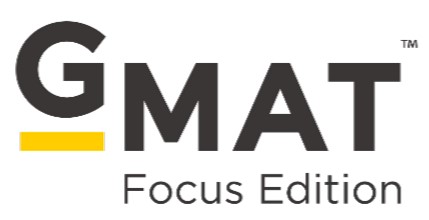 Major announcement from the Graduate Management Admission Council (GMAC) today! In late 2023, a completely revamped GMAT, called GMAT Focus Edition, will be released to replace the current GMAT exam. The current GMAT exam will be retired in early 2024. We updated this article on March 15 to incorporate detailed information that we learned over the past week about the new exam.
Major announcement from the Graduate Management Admission Council (GMAC) today! In late 2023, a completely revamped GMAT, called GMAT Focus Edition, will be released to replace the current GMAT exam. The current GMAT exam will be retired in early 2024. We updated this article on March 15 to incorporate detailed information that we learned over the past week about the new exam.
Content and Section Changes
The current GMAT has four test sections: a 62 minute Quantitative section, a 65 minute Verbal section, a 30 minute Integrated Reasoning section, and a 30 minute Analytical Writing essay.
The new GMAT Focus Edition will have three sections, each of which will be 45 minutes long: Quantitative, Verbal, and Data Insights.
- Quantitative will contain 21 multiple choice Problem Solving questions only.
- Verbal will contain 23 Critical Reasoning and Reading Comprehension questions. Sentence Correction will be eliminated with the GMAT Focus Edition.
- Data Insights will contain 20 questions – the four current Integrated Reasoning question types plus Data Sufficiency, which is moving from Quant to the Data Insights section.
- There will not be an essay in the GMAT Focus Edition.
The GMAT Focused Edition will have “reduced content.” In addition to the elimination of Sentence Correction and the AWA essay, Geometry questions will be eliminated from Quant, as is the case with the current Executive Assessment exam that the GMAC also administers.
GMAT Focus Edition Scoring
In the current GMAT, the Quant and Verbal sections receive scores from 6 to 51 in one point increments. Only these two sections contribute to the overall GMAT score, which ranges from 200 to 800 in 10-point increments. The Integrated Reasoning section generates a separate score from 1 to 8.
In the GMAT Focus Edition, each of the three sections receive scores from 60 to 90 in one point increments. Each section, including Data Insights, contributes to the overall GMAT score. The overall GMAT score ranges from 205 to 805 in 10-point increments. Why the extra 5 points? We presume to allow schools to easily identify whether a certain score is from the current GMAT or the GMAT Focus Edition.
GMAT Focus Edition Test Taker Policies
Current test takers choose from three test section orders: Quant/Verbal/IR/AWA, Verbal/Quant/IR/AWA, and AWA/IR/Quant/Verbal. With the new GMAT Focus Edition, test takers will be able to choose any order for the test sections. This creates six possible options: Quant/Verbal/Data, Quant/Data/Verbal, Verbal/Quant/Data, Verbal/Data/Quant, Data/Quant/Verbal, and Data/Verbal Quant.
With the current GMAT, test takers must answer questions in the order received and cannot return to prior questions. With the GMAT Focus Edition, you will be able to bookmark and review as many questions as you want. You can review questions that you didn’t bookmark. Furthermore, you can change up to three answers per section. Any question review or answer changes must be done within the 45-minute section time limits. The GMAT Focus Edition will continue to be a question adaptive exam, like the current GMAT. But the scoring algorithm will presumably contain some modifications to reflect that users can change up to three answers.
GMAT Focus Edition Score Reports
Scoring reporting will also change to match up with how the Online GMAT currently works. With current test-center exams, one must select up to five graduate programs before knowing the exam results in order to take advantage of free score sending. Furthermore, all test center exam results that are not cancelled appear on the score report.
With the GMAT Focus Edition, you can choose to send five score reports after you receive your scores. In addition, each score report will contain the results only for that specific exam. Schools will not see lower scores unless you choose to send them. This change eliminates the need to cancel GMAT scores that you are not happy with.
Finally, the GMAT Focus Edition will have an improved Official Score Report with “detailed performance insights”. We don’t yet know what this entails, but surmise that test takers will automatically get something equivalent to the Enhanced Score Report that is currently available at an additional cost only for test-center exams.
Why is the GMAT Getting Revamped?
GMAT testing volume declined from 242,714 worldwide exams administered in 2018 to 124,112 in 2022, a nearly 50% decline. GRE testing volume has declined by an even slightly higher percentage. These significant drops are largely driven by test-optional policies and test waivers that MBA and other graduate programs put into place when the pandemic closed test centers in March 2020. Furthermore, over the past several years, MBA candidates who submit scores have increasingly taken the GRE instead of the GMAT.
We don’t know the GMAC’s motivation for introducing the new GMAT Focus Edition. But we think that the GMAC hopes to prevent continued declines in testing volume. By introducing a shorter exam that is more test-taker friendly, the GMAT presumably strives to convince more MBA aspirants to take the GMAT instead of the GRE. The GMAC is positioning the GMAT Focus Edition as one that “hones in on the higher-order critical reasoning and data literacy skills that are more relevant and applicable in the business environment of tomorrow.” We believe that, with this positioning, the GMAC hopes to convince business schools with test optional policies to reintroduce testing requirements.
GMAT Genius will share further information about the GMAT Focus Edition as more information about this new GMAT becomes available.
